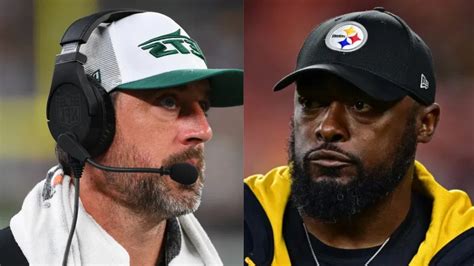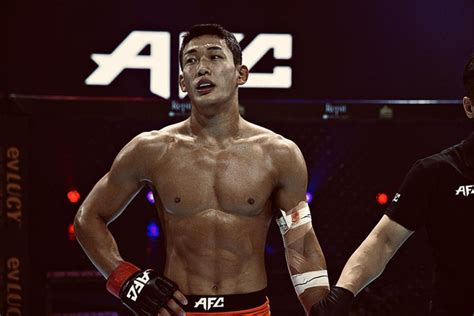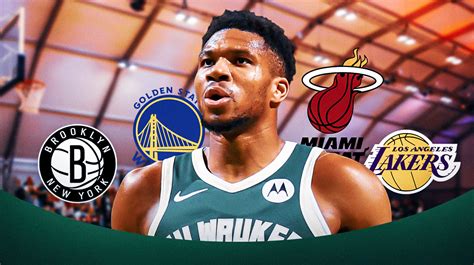
Shaquille O’Neal, the towering NBA legend, is publicly requesting to retire his famous moniker, “Big Man,” declaring he no longer wishes to be addressed by the title. The move signifies a shift in O’Neal’s personal branding and a reevaluation of how he wants to be perceived in his post-basketball career, driven by his belief that the label is no longer fitting, especially concerning the modern NBA.
Shaquille O’Neal, an icon synonymous with dominance in the paint, has explicitly stated his desire to shed his long-held “Big Man” title. This request marks a deliberate effort by the four-time NBA champion to redefine his public persona, emphasizing a transition from his on-court identity to his multifaceted roles as a businessman, DJ, and media personality. O’Neal, known for his playful nature and larger-than-life image, conveyed his decision with a straightforward message: “Don’t call me Big Man anymore.” The rationale behind this request appears rooted in O’Neal’s view of the evolving NBA landscape, where the traditional “Big Man” archetype is becoming increasingly obsolete.
Throughout his illustrious career, O’Neal embraced the “Big Man” title, using his imposing physical presence and exceptional athleticism to dominate opponents. He reveled in the physicality of the game, establishing himself as one of the most unstoppable forces in NBA history. However, the NBA has undergone a significant transformation since O’Neal’s prime. The emphasis has shifted towards perimeter-oriented play, with skilled guards and versatile forwards taking center stage. Traditional centers who primarily operate in the low post are becoming increasingly rare, replaced by players who can stretch the floor, handle the ball, and contribute in multiple facets of the game.
O’Neal’s decision to retire the “Big Man” title reflects this changing landscape. He recognizes that the term no longer accurately represents the current state of the NBA, where agility, shooting, and versatility are highly valued. “You don’t see that anymore,” O’Neal acknowledged, highlighting the decline of the traditional center position. His statement underscores his understanding of the game’s evolution and his desire to align his personal brand with the modern NBA.
Beyond the evolving NBA landscape, O’Neal’s decision likely stems from a desire to transcend his on-court identity. Since retiring from professional basketball in 2011, O’Neal has successfully transitioned into a prominent media personality, entrepreneur, and DJ. He has established himself as a respected analyst on TNT’s “Inside the NBA,” where he provides insightful commentary and engages in entertaining banter with his co-hosts. O’Neal’s business ventures span various industries, including restaurants, fitness centers, and real estate. He has also cultivated a successful career as a DJ, performing at clubs and festivals around the world.
By shedding the “Big Man” title, O’Neal aims to broaden his public image and showcase his diverse talents and interests. He wants to be recognized for his accomplishments beyond basketball, highlighting his entrepreneurial spirit, media presence, and musical pursuits. This rebranding effort allows O’Neal to connect with a wider audience and solidify his legacy as a multifaceted icon.
The impact of O’Neal’s decision extends beyond his personal brand. It serves as a commentary on the changing nature of the NBA and the evolving role of the center position. O’Neal’s dominance in the paint defined an era of basketball, but his willingness to adapt and evolve reflects the dynamism of the sport. His decision to retire the “Big Man” title signals a symbolic passing of the torch, acknowledging the shift towards a more perimeter-oriented and versatile style of play.
While O’Neal’s request is straightforward, it carries significant weight due to his iconic status in the basketball world. His words resonate with fans, players, and analysts alike, sparking conversations about the evolution of the game and the changing roles of traditional positions. O’Neal’s decision is a reminder that the NBA is a constantly evolving league, where innovation and adaptation are essential for success.
The response to O’Neal’s request has been varied. Some fans and analysts have expressed understanding and support, recognizing his desire to redefine his image and acknowledge the changing NBA landscape. Others have expressed nostalgia for O’Neal’s dominant playing style and the era of traditional centers. Regardless of individual perspectives, O’Neal’s decision has undoubtedly sparked a dialogue about the evolution of basketball and the enduring legacy of one of its greatest players.
O’Neal’s career statistics speak volumes about his dominance as a “Big Man.” He averaged 23.7 points, 10.9 rebounds, and 2.3 blocks per game over his 19 seasons in the NBA. He won four NBA championships, three with the Los Angeles Lakers and one with the Miami Heat. He was named the NBA’s Most Valuable Player in 2000 and was a 15-time All-Star. O’Neal’s impact extended beyond statistics, as he possessed an unparalleled combination of size, strength, and athleticism that made him virtually unstoppable in the paint.
His influence on the game is undeniable, inspiring countless young players to emulate his dominant style of play. However, O’Neal’s decision to retire the “Big Man” title suggests a recognition that the game has moved beyond the traditional center archetype. He is acknowledging that the NBA is now defined by versatility, skill, and perimeter-oriented play.
In conclusion, Shaquille O’Neal’s request to retire his “Big Man” title represents a significant moment in his personal branding and a commentary on the evolving nature of the NBA. His decision reflects his desire to transcend his on-court identity and showcase his diverse talents and interests. It also acknowledges the shift towards a more perimeter-oriented and versatile style of play, signaling a symbolic passing of the torch from the era of dominant centers. While O’Neal’s legacy as a “Big Man” will forever be etched in NBA history, his decision to retire the title suggests a forward-thinking approach, embracing the changing landscape of the game and redefining his public persona for the next chapter of his career. His declaration signifies more than just a change in nomenclature; it represents an evolution, an adaptation, and a clear statement about his present and future aspirations, separate from the constraints of his past athletic identity. It is a testament to his ability to remain relevant and influential, even as the game he once dominated continues to evolve.
The request to retire the “Big Man” title can also be viewed through the lens of O’Neal’s self-awareness and understanding of his brand. He has always been a master of marketing himself, cultivating a larger-than-life personality that resonates with fans of all ages. This latest move can be seen as a strategic effort to maintain that relevance and to ensure that his brand remains aligned with his current endeavors. By shedding the “Big Man” label, he is effectively repositioning himself as a multifaceted entertainer and businessman, rather than simply a retired basketball player. This allows him to appeal to a broader audience and to explore new opportunities that may not have been available to him had he remained solely defined by his on-court achievements.
Furthermore, O’Neal’s decision highlights the growing importance of personal branding in the world of professional sports. Athletes are no longer just athletes; they are brands, with carefully cultivated images and strategic partnerships. O’Neal has long understood this dynamic, and his latest move is a prime example of how athletes can proactively manage their brands to remain relevant and successful long after their playing careers have ended. It is a lesson that many other athletes can learn from, as they navigate the challenges of transitioning from the court to the next phase of their lives.
The implications of O’Neal’s decision extend beyond the realm of sports and into the broader cultural landscape. The term “Big Man” has historically been associated with power, dominance, and physical prowess. By rejecting this title, O’Neal is potentially challenging the traditional notions of masculinity and redefining what it means to be a successful and influential figure. He is demonstrating that success can be achieved through a variety of avenues, including entrepreneurship, media, and entertainment, and that physical dominance is not the only path to relevance. This message is particularly important in today’s society, where there is a growing emphasis on diversity, inclusivity, and challenging traditional stereotypes.
The legacy of Shaq as the “Big Man” is undeniable. He leaves behind a highlight reel of powerful dunks, tenacious rebounds, and intimidating defensive plays. His presence on the court was a force to be reckoned with, and he consistently drew double and triple teams from opposing defenses. His ability to dominate the paint single-handedly changed the way the game was played, and he inspired a generation of young players to emulate his aggressive and physical style.
However, the NBA has evolved significantly since O’Neal’s prime. The emphasis has shifted towards perimeter-oriented play, with teams prioritizing shooting, spacing, and ball movement. Traditional centers who primarily operate in the low post are becoming increasingly rare, replaced by players who can stretch the floor, handle the ball, and contribute in multiple facets of the game. This shift has been driven by a number of factors, including the increasing prevalence of analytics, the emergence of skilled international players, and the evolution of coaching strategies.
O’Neal’s decision to retire the “Big Man” title is a tacit acknowledgment of this evolution. He recognizes that the traditional center position is becoming increasingly obsolete, and he wants to distance himself from that outdated archetype. By shedding the “Big Man” label, he is aligning himself with the modern NBA and positioning himself as a forward-thinking analyst and commentator.
It is important to note that O’Neal’s decision is not necessarily a criticism of traditional centers. He still recognizes the value of size, strength, and physicality in the game. However, he believes that these attributes must be combined with other skills, such as shooting, passing, and ball-handling, in order to be successful in the modern NBA. He is simply acknowledging that the game has changed, and that players must adapt in order to thrive.
The reaction to O’Neal’s request has been mixed, with some fans expressing disappointment that he is abandoning his iconic moniker. Others have praised him for his forward-thinking approach and his willingness to embrace change. Regardless of individual opinions, O’Neal’s decision has undoubtedly sparked a conversation about the evolution of the NBA and the changing roles of traditional positions.
Ultimately, O’Neal’s request to retire the “Big Man” title is a personal decision that reflects his individual goals and aspirations. He has had a remarkable career as a basketball player, and he has earned the right to define his legacy on his own terms. Whether fans agree with his decision or not, they must respect his desire to evolve and to explore new opportunities beyond the basketball court.
His legacy as a dominant force in the NBA is secure, and his influence on the game will be felt for generations to come. However, he is now ready to move on to the next chapter of his life, and he wants to be recognized for his accomplishments beyond basketball. By shedding the “Big Man” label, he is signaling his intention to redefine his public image and to embrace the challenges and opportunities that lie ahead.
Shaquille O’Neal’s request to retire the “Big Man” title is more than just a change in nomenclature; it is a symbolic gesture that represents the evolution of the NBA and the changing role of the traditional center. It is a testament to his ability to adapt and to remain relevant, even as the game he once dominated continues to evolve. It is a clear statement that he is ready to move on to the next chapter of his life, and that he wants to be recognized for his accomplishments beyond basketball.
This decision also opens up interesting avenues for discussion about the future of the center position in the NBA. Will the traditional “Big Man” become a thing of the past? Or will there be a resurgence of dominant centers who can combine size and strength with modern skills? Only time will tell, but O’Neal’s decision has undoubtedly added fuel to the fire.
He has consistently shown a willingness to challenge norms and to defy expectations, and his latest move is no exception. Whether he is dominating the paint, entertaining fans on television, or building successful businesses, O’Neal has always been a force to be reckoned with. His decision to retire the “Big Man” title is simply the latest chapter in his remarkable story, and it will be fascinating to see what he accomplishes next.
Ultimately, Shaquille O’Neal’s legacy will be defined by his impact on the game of basketball, his larger-than-life personality, and his ability to connect with fans of all ages. He is one of the most iconic figures in NBA history, and his influence will be felt for generations to come. While he may no longer want to be called “Big Man,” he will always be remembered as one of the greatest players to ever step on the court. His request is a forward-looking declaration, shedding the constraints of the past to embrace a multifaceted future, solidifying his position not just as a basketball legend, but as a cultural icon. The “Big Man” may be gone, but Shaq’s influence remains as large as ever.
Frequently Asked Questions (FAQ):
1. Why does Shaquille O’Neal no longer want to be called “Big Man?”
Shaquille O’Neal’s decision stems from his belief that the NBA has evolved significantly since his playing days, with a decreased emphasis on traditional center play and an increased focus on perimeter-oriented skills. He feels the “Big Man” title no longer accurately reflects the modern game. Additionally, it is about shedding that image for his other endeavors.
2. How has the NBA changed since Shaquille O’Neal’s prime?
The NBA has shifted towards a more perimeter-oriented style of play, with increased emphasis on shooting, spacing, and versatility. Traditional centers who primarily operate in the low post are becoming less common, replaced by players who can stretch the floor, handle the ball, and contribute in multiple facets of the game. “You don’t see that anymore,” O’Neal stated, referring to the dominance of traditional centers.
3. What are Shaquille O’Neal’s current ventures outside of basketball?
Since retiring from professional basketball in 2011, O’Neal has transitioned into a successful media personality, entrepreneur, and DJ. He is a respected analyst on TNT’s “Inside the NBA,” and his business ventures span various industries, including restaurants, fitness centers, and real estate. He also performs as a DJ at clubs and festivals worldwide.
4. What was Shaquille O’Neal’s impact as a “Big Man” during his NBA career?
Shaquille O’Neal was one of the most dominant players in NBA history, known for his imposing physical presence, exceptional athleticism, and unstoppable force in the paint. He averaged 23.7 points, 10.9 rebounds, and 2.3 blocks per game over his 19 seasons. He won four NBA championships and was named the league’s Most Valuable Player in 2000.
5. How has the public reacted to Shaquille O’Neal’s decision to retire the “Big Man” title?
Reactions have been mixed. Some fans and analysts understand and support his decision, recognizing his desire to redefine his image and acknowledge the changing NBA landscape. Others have expressed nostalgia for O’Neal’s dominant playing style and the era of traditional centers. Ultimately, the decision sparked conversation regarding the evolution of basketball.









